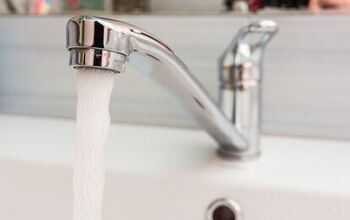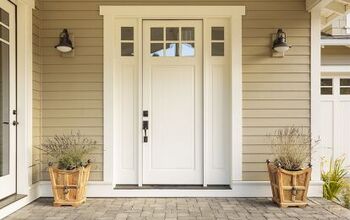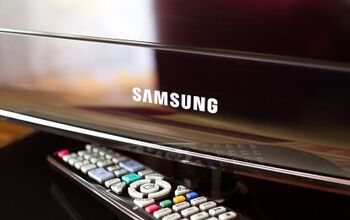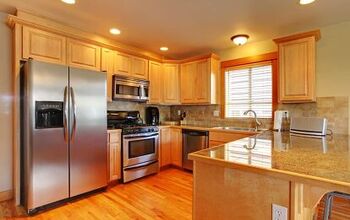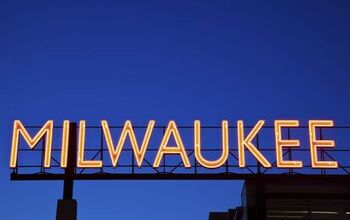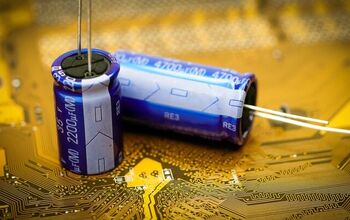Why Does My Garage Door Open By Itself?

The sound of your garage door opening when it shouldn’t is scary. Your garage is about more than parking your car; it’s also a gateway into your home. Every homeowner should trust their garage door to stay closed, but that’s hard when it’s faulty. So, why does my garage door open by itself?
Your garage door will open by itself if the sensors are blocked with debris, or if they are damaged. Power surges and bad weather can also damage the circuitry in your garage door system. Sadly, you must replace the circuit board if it’s fried, as it’s irreparable. You may need to replace the wall opener or reprogram your garage remote if the circuity and sensors are fine.
Signal interference from a nearby garage is also possible, but that’s become quite rare. In some cases, you may simply need to replace your garage door if it's 15-30 years old or more. Follow along as we explore why your garage door opens by itself and help you fix it.
Why Does My Garage Door Randomly Open?
Whether it be damaged sensors or faulty wiring, garage doors can open by themselves for several reasons. In most cases, you only need to replace a part or two. However, that’s not always the case, so it’s important to understand all the possible causes and solutions.
1. Blocked Sensors
The most common reason why your garage door opens by itself is that the sensors are blocked. Garage door sensors exist to make sure the door can safely close. Everything from fallen leaves to tiny rocks can block the sensors, and the door won’t stay shut.
That’s why it’s important to clean your garage floor as often as possible. Check the space between the sensors for debris and obstructions that will stop your garage from working. You will likely need to sweep your garage floor more often in the fall and winter when dead leaves wind up in your garage.
2. Damaged Sensors
Over time, your garage door’s sensors wear out and stop working. They can go bad because of everything from power surges to bad wires. The photo eyes on the sensors can also malfunction.
Photo eyes use green and red lights to make sure nothing is in the way. When they stop working, your garage door can unexpectedly open and close for seemingly no reason.
You can find replacement garage door sensors for as little as $75 depending on the model. However, it’s worth it to spend extra to have a professional install the new sensors for you. This can add up to $100 to the overall cost, but it’s helpful if you have no experience.
3. Faulty Circuit Board
The circuitry in a garage door system can withstand lots of unique conditions, but it isn’t invincible. Moisture, rust, excessive heat, and extreme weather conditions can take a big toll on circuitry. It’s quite common for garage doors to fail after a power outage.
Surges can destroy your garage door’s circuit board and affect the other electronics in your garage. Unfortunately, you cannot simply fix a damaged circuit board. You must replace it or else you’ll have to manually open and close your garage door each day.
It costs up to $150 to replace your garage door’s circuit board. That said, the price varies based on the model and which garage door service you hire for the job.
4. Damaged Remote Or Wall Opener
Have your remote and wall opener been acting up lately? If so, that could be why your garage door opens by itself. This is an easy problem to solve, and it’s much cheaper than replacing the circuit board.
Simply reset the remote, replace it, and program it to pair it with your garage door. Call the closest garage door service center near you to replace the wall opener. This involves wiring and special equipment, so it’s best to hire a professional.
5. Frequency Interference
Garage doors typically open and close based on frequencies. Each garage door has a unique frequency tied to the button or remote. That’s why your remote opens your garage door but won’t affect your neighbor’s door.
However, frequency interference can occur and make your garage door unexpectedly open. This is scary when you’re home alone and aren’t expecting anyone. In rare cases, your neighbor may have a garage door opener that shares a frequency with your door.
Luckily, you can quickly resolve this if you simply reprogram your garage door’s transmitters. In this case, simply call a local garage specialist to handle the problem. That way, you can be sure that nobody can accidentally open your garage door.
6. Damaged Door
It’s easy to assume your garage door opens by itself because of bad wiring. However, this can also happen if there’s a physical problem with the door. For example, your garage door may not stay shut if it’s bent or warped.
That’s especially true if your garage door is warped at the bottom and interferes with the sensor. This isn’t just an inconvenience; it’s a safety hazard. Inspect the door itself if the wiring seems to be fine but the door still opens by itself.
7. Your Garage Door Is Outdated
How long have you had your garage door? Like anything else, garage doors have lifespans. Garage doors can last between 15 and 30 years, but it depends on the model, climate, and condition.
Over time, the circuitry and mechanical parts will weaken. Excessive moisture and rust can take a toll on the mechanical parts of your garage door. While you can replace some of these parts, including the circuit board, it may be worthwhile to replace the door altogether.
Are Garage Door Sensors Universal?
Many garage door sensors are universal, but not all of them are. That’s why it’s a great idea to research compatibility before you buy new sensors. Otherwise, you will waste $75 or more.
Luckily, most garage services keep lots of universal sensors in stock. If you aren’t sure, call them to make sure you get the right replacement sensors. They can also replace the sensors for you, but that typically comes with extra fees.
Why Is My Garage Door So Loud?
Check the tracks and hinges if your garage door sounds louder than usual. The door will sound quite unpleasant if the tracks and hinges are rusty and warped. This can also happen if the rollers are damaged or slightly off the track.
It’s worth the cost to replace these parts if they are damaged or rusted beyond repair. The sound will only get worse over time. You can avoid this if you regularly lubricate the track and hinges before it’s too late.
Lithium grease is a great lubricant for garage door hinges. Silicone spray is also quite effective, but many garage professionals use lithium grease.
Summing It Up
Your garage door will open by itself if the sensors are blocked or damaged. Sweep the garage floor so the space between the garage sensors is free. The door will also unexpectedly open if the circuit board is faulty or the wires are damaged. Call your local garage service if you experience electrical problems that disrupt the door.
Related Guides:

Nick Durante is a professional writer with a primary focus on home improvement. When he is not writing about home improvement or taking on projects around the house, he likes to read and create art. He is always looking towards the newest trends in home improvement.
More by Nick Durante



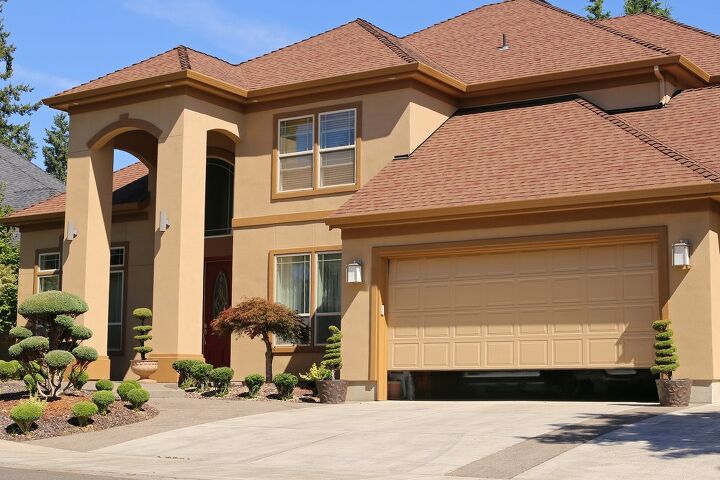






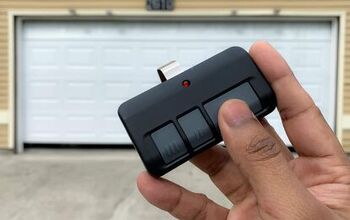
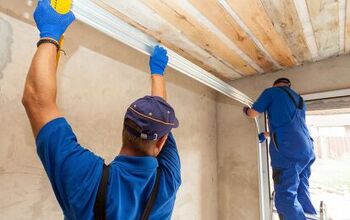
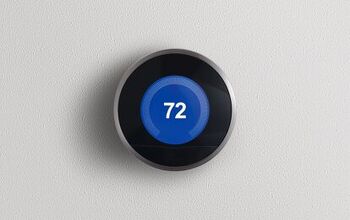
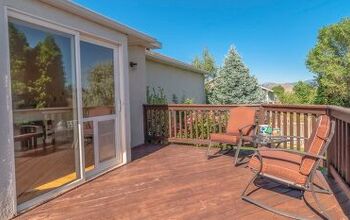
![10 Best Electric Pressure Washers – [2022 Reviews & Guide]](https://cdn-fastly.upgradedhome.com/media/2023/07/31/9070600/10-best-electric-pressure-washers-2022-reviews-guide.jpg?size=350x220)



